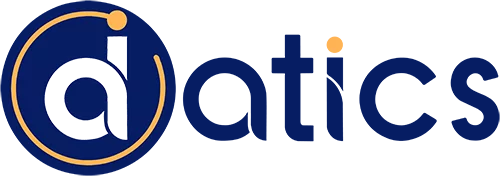Why Hiring Programmers is Crucial for Your Startup
When you hire programmer talent, your startup gains the technical expertise needed to transform ideas into products. Here’s a quick answer if you want the essentials:
- Wide Range of Experience: Look for programmers with varied backgrounds, as their experience can bring valuable insights.
- Flexibility: Hiring freelance or contract programmers gives you the ability to scale your team up or down based on project needs.
- Cost-Effective: Compared to in-house teams, freelance programmers are generally more affordable.
Hiring the right programmer is essential for any startup aiming to succeed in today’s tech-driven world. Software developers help bring innovative ideas to life, ensuring that your products are up to industry standards and meet user expectations. However, the journey of finding the perfect programmer comes with its own set of challenges. Identifying the right skill set, understanding project requirements, and ensuring a good fit can be time-consuming and overwhelming.
I’m Umair Majeed, CEO of Datics AI. With years of experience in helping startups hire programmer talent, I’ve seen how critical finding the right developer can be for your startup’s success.
Simple guide to hire programmer:
– developer hiring
– hire remote developers
– software developers for hire
Understanding Your Project Needs
Before you start looking for a programmer, understand your project needs. This means defining the scope, project requirements, and the technical skills required.
Scope
The scope of your project outlines what you want to achieve. Think of it as the blueprint of your project. It includes:
- Goals: What are you aiming to accomplish?
- Deliverables: What will be produced?
- Tasks: What steps need to be taken?
- Costs: What is your budget?
- Deadlines: When should tasks be completed?
For example, if you’re building a mobile app, your scope might include features like user login, profile management, and notifications. Make sure to be as detailed as possible to avoid any misunderstandings later on.
Project Requirements
Once the scope is clear, identify the specific project requirements. This includes both functional and non-functional needs.
- Functional Requirements: These are the specific behaviors or functions of the system. For example, a functional requirement for an e-commerce site might be the ability to process payments.
- Non-Functional Requirements: These are the criteria that judge the operation of a system. For example, performance, usability, and security.
Defining these requirements upfront helps ensure that you and your programmer are on the same page.
Technical Skills
Finally, identify the technical skills needed to complete your project. Different projects require different programming languages and frameworks. Here are some examples:
- SwiftUI for iOS development
- Kotlin for Android development
- JavaScript for web development
- Python for data analysis
Make sure to list these skills clearly in your job description. If you’re unsure which skills are needed, consult with a technology expert or interim CTO.
By understanding your project needs, you set a solid foundation for a successful collaboration with your programmer. Next, we’ll dive into how to hire the right programmer for your project.
How to Hire a Programmer
Now that you understand your project needs, it’s time to find the right programmer to bring your vision to life. Here’s how to do it effectively:
Job Description
A clear and detailed job description is your first step. It sets the tone for what you expect and attracts the right candidates. Here’s what to include:
- Project Scope: Outline what the project entails. Is it a short-term task or a long-term engagement?
- Skills Required: List the specific skills you need. For example, if you need someone proficient in SwiftUI and Kotlin, mention it explicitly.
- Experience Level: Specify whether you need a beginner, intermediate, or advanced coder.
- Responsibilities: Outline what the coder will be doing day-to-day. Will they be modifying existing apps, adding new features, or performing QA?
- Company Overview: Briefly describe your company and its mission. This helps candidates understand your values and culture.
Previous Experience
When you hire a programmer, their previous experience is crucial. Here’s what to look for:
- Relevant Projects: Ensure they have worked on projects similar to yours.
- Industry Knowledge: Experience in your specific industry can be a significant advantage.
- Problem-Solving Skills: Look for examples where they overcame challenges.
For instance, if you’re developing a mobile app, check if the programmer has built similar apps before. This gives you confidence in their ability to deliver.
Work Samples
Reviewing work samples is crucial to understanding a programmer’s capabilities. Focus on:
- Code Quality: Is it clean and well-documented?
- Functionality: Does it work as intended?
- Creativity: Are they innovative in their approach?
A coder’s portfolio is a window into their skills and experience. Look for diverse projects that show versatility and high-quality, polished work.
Specific Questions
Asking the right questions during an interview provides deeper insights into a coder’s abilities and mindset. Here are some examples:
- Problem-Solving: “Can you describe a challenging project you worked on and how you overcame the obstacles?”
- Technical Skills: “How do you approach optimizing code for performance?”
- Teamwork: “Can you share an experience where you had to collaborate closely with a team?”
These questions help you understand how the candidate approaches problems, their technical prowess, and their ability to work within a team.
By carefully crafting your job description, evaluating previous experience and work samples, and asking specific questions, you can hire a programmer who not only has the technical skills but also fits well within your team and culture.
Next, we’ll look at the best sites for hiring programmers.
Best Sites for Hiring Programmers
Finding the right platform to hire a programmer can make all the difference. Here are some of the best sites to consider:
Datics AI Platform
Datics AI Platform is a comprehensive solution tailored for startups and established businesses alike. It connects employers with a curated pool of top-tier programmers skilled in various technologies.
- User-Friendly: The interface is straightforward, making it easy to post jobs and review applications.
- AI Matching: Our platform uses advanced AI to match your job with the most suitable candidates, saving you time.
- Wide Reach: Your job post can reach a vast network of potential candidates, increasing the likelihood of finding the right programmer.
By leveraging our platform, you can streamline your hiring process and find the best talent suited to your needs. Next, we’ll dig into how to evaluate software developers effectively.
Evaluating Candidates
Evaluating candidates is a crucial step when you hire a programmer. Here’s how to do it effectively:
Technical Skills
Technical skills are the backbone of any good programmer. Here’s how to gauge them:
- Portfolios: Look at their past projects. Are they similar to what you need? Do they show complexity and quality? A strong portfolio often speaks louder than a resume.
- Coding Tests: Use platforms like HackerRank or LeetCode to assess their coding abilities. These tests can reveal their problem-solving skills and how they approach challenges.
- Technical Interviews: Conduct live coding sessions or provide take-home challenges. This helps you see their thought process and coding style in real-time.
Fact: According to McKinsey, tech professionals often change roles every 2.7 years, gaining new skills and experiences.
Communication Skills
Good communication is essential for project success. Here’s what to look for:
- Clarity: Can they explain complex ideas in simple terms? This is crucial for collaborating with non-technical team members.
- Responsiveness: How quickly do they respond to messages? Timely communication can keep projects on track.
- Listening: Do they actively listen and understand your requirements? This ensures they can meet your expectations.
Pro Tip: Notice their email etiquette and how they handle initial phone or video calls. This can give you a sense of their communication style and if it matches your expectations.
Industry Fit
An industry fit means the candidate understands the specific needs of your sector. Here’s how to check:
- Relevant Experience: Have they worked on projects in your industry before? Prior experience can lead to faster onboarding and better insights.
- Case Studies: Ask for case studies or project summaries. This can show how they tackled industry-specific challenges.
- References: Get references from past employers in your industry. They can provide insights into the candidate’s performance and reliability.
Example: A hiring manager at a regional bank struggled to find a developer familiar with their niche requirements. Eventually, they found a candidate with relevant experience who could hit the ground running.
Project Fit
Project fit ensures the candidate can meet your specific project needs. Here’s what to consider:
- Technical Requirements: Are they proficient in the languages and tools your project requires? For instance, if you need a mobile app, do they know Swift or Kotlin?
- Problem-Solving Skills: Can they handle unexpected challenges? Look for examples in their past work where they overcame significant obstacles.
- Team Dynamics: Will they fit well with your existing team? Meet the team members who will work with them to gauge compatibility.
Checklist:
– Do they have a formal team structure?
– Are roles clearly defined?
– How do they handle collaboration and conflicts?
By thoroughly evaluating technical skills, communication abilities, industry fit, and project fit, you can ensure you’re hiring the right programmer for your needs. Next, we’ll explore the cost of hiring programmers.
Cost of Hiring Programmers
When planning to hire a programmer, understanding the cost is crucial. Rates can vary based on experience, skill level, and project complexity. Let’s break it down:
Entry-Level Rates
Entry-level programmers are typically recent graduates or those with less than two years of experience. They are great for simpler tasks and projects.
- Hourly Rates: $25 to $50 per hour
- Annual Salary: $50,000 to $75,000
Entry-level programmers are ideal for straightforward tasks but may need more guidance and supervision.
Experienced Rates
Experienced developers have more than five years of experience. They can handle complex projects and have a deep understanding of various technologies.
- Hourly Rates: $50 to $150 per hour
- Annual Salary: $100,000 to $150,000
Experienced developers are suitable for complex projects and can work more independently.
Budget Considerations
Several factors influence the cost of hiring a programmer:
- Project Size and Complexity: Larger and more complex projects will naturally cost more.
- Location: Developers in the US and Western Europe tend to charge more than those in Eastern Europe, Asia, or Latin America.
- Technology Stack: Specialized skills (like AI or blockchain) may command higher rates.
Fact: According to Forbes, hiring a full team can be more cost-effective for larger projects.
Cost-Saving Tips
Here are some ways to save money without compromising on quality:
- Hire Freelancers: Platforms like Datics AI offer top-tier freelancers who can be more cost-effective than full-time employees.
- Outsource: Consider offshoring or nearshoring to countries with lower labor costs. This can reduce expenses significantly.
- Use Open-Source Tools: Leveraging open-source software can save on licensing fees.
- Clear Requirements: Having a well-defined project scope can prevent costly changes down the line.
Understanding the costs involved in hiring software developers helps you plan better and make informed decisions. Next, we’ll explore tips for hiring freelance programmers.
Tips for Hiring Freelance Programmers
Hiring freelance programmers can be a smart move for many projects. Here are some tips to guide you through the process, covering freelance platforms, contract terms, and payment arrangements.
Freelance Platforms
Freelance platforms are a great place to start when looking to hire a programmer. They offer a wide pool of talent and various tools to help you find the right fit.
- Freelance Marketplaces: There are several reputable freelance marketplaces where you can find talented programmers. These platforms allow you to check profiles, read reviews, and see past projects to ensure you hire the right person.
- Professional Networks: Leveraging professional networks and communities can also be a great way to find skilled freelancers. Many programmers are active in these communities and can be approached directly.
- Job Boards: Posting your project on job boards that cater to freelancers can attract a wide range of applicants with the skills you need.
These platforms often provide tools for project management, communication, and payment, making the hiring process smoother.
Contract Terms
Having a clear contract is essential when working with freelance programmers. Here are some key elements to include:
- Scope of Work: Clearly define what the project entails, including tasks, deliverables, and timelines.
- Payment Terms: Specify how and when payments will be made. This could be hourly, per milestone, or upon project completion.
- Confidentiality: Include non-disclosure agreements (NDAs) to protect your intellectual property.
- Revisions: Outline the number of revisions included and how additional changes will be handled.
A well-drafted contract helps in setting clear expectations and reduces the risk of misunderstandings.
Payment Arrangements
Freelance platforms offer different payment arrangements to suit your project needs. Here are some common options:
- Hourly Rate: Pay the programmer based on the number of hours worked. This is ideal for projects where the scope may change.
- Fixed Price: Agree on a fixed price for the entire project. This works well for projects with a well-defined scope.
- Milestone Payments: Break the project into milestones and make payments upon the completion of each. This helps in managing cash flow and ensures continuous progress.
- Recurring Payments: For ongoing work, such as maintenance or updates, you can set up recurring payments on a weekly or monthly basis.
Each payment arrangement has its pros and cons, so choose the one that best fits your project requirements.
Hiring freelance programmers can be a cost-effective and flexible solution for your development needs. By using the right platforms, setting clear contract terms, and choosing suitable payment arrangements, you can ensure a smooth and successful collaboration.
Next, we’ll dive into some frequently asked questions about hiring programmers.
Frequently Asked Questions about Hiring Programmers
How much does it cost to hire a programmer?
The cost to hire a programmer varies based on their experience and the complexity of your project.
Entry-Level Rates:
– Hourly Rates: $30 to $50 per hour
– Monthly Rates: Around $4,800 to $8,000 (assuming 160 hours of work per month)
Experienced Rates:
– Hourly Rates: $50 to $75 per hour
– Monthly Rates: Approximately $8,000 to $12,000
Entry-level programmers are great for straightforward tasks but may need more guidance. Experienced programmers can handle complex projects more independently, making them suitable for medium to high-complexity tasks.
How to find a good coder?
Finding a good coder involves several steps:
- Evaluation Criteria:
- Technical Skills: Ensure they are proficient in the programming languages and tools relevant to your project.
- Communication Skills: They should be able to explain their work clearly and understand your requirements.
Problem-Solving Abilities: Ask about their approach to solving coding challenges.
Industry Fit:
- Check if they have experience in your industry. For example, a coder with experience in finance might be better suited for a stock market analysis project.
Review their portfolio to see if they have worked on similar projects.
Datics AI Platform:
- Use our platform to find and hire programmers. Our platform offers reviews and past project details to help you make an informed decision.
Conclusion
Hiring the right programmer is crucial for the success of your project. At Datics AI, we specialize in custom software development, changing your ideas into market-ready products with our end-to-end services. Whether you’re a startup or an established business, our comprehensive support ensures that your project is in capable hands from concept to launch.
We understand that every project is unique, and so are its requirements. That’s why we focus on meticulous attention to detail, ensuring that every aspect of your project aligns with your vision and business goals. Our team of highly skilled developers, designers, and project managers bring deep technical know-how and innovative solutions to every project, ensuring that we make solid architectural and engineering decisions that stand the test of time.
Final Thoughts
Choosing the right programmer can be challenging, but with the right approach, it can lead to incredible results.
- Understand Your Project Needs: Clearly define the scope, technical skills, and project requirements.
- Evaluate Candidates Thoroughly: Look for technical skills, communication abilities, and industry fit.
- Use Trusted Platforms: Platforms like Freelancer.com and Upwork are great places to find qualified candidates.
By following these steps, you can find a programmer who not only meets your technical needs but also fits well within your team and project culture.
Future Collaboration
Ready to bring your vision to life? At Datics AI, we are more than just a service provider; we are your partner in success. Whether you need help with a small project or a large-scale development, our team is here to support you every step of the way.
Let’s craft a success story together. Contact us today to start your custom software development journey with Datics AI.
By choosing Datics AI, you’re not just hiring a programmer; you’re gaining a dedicated partner committed to your success.




